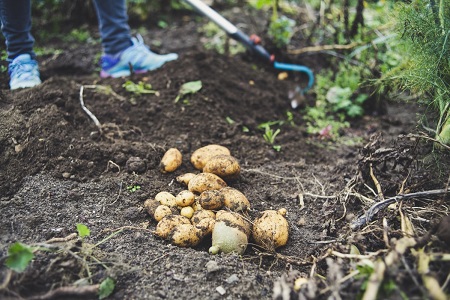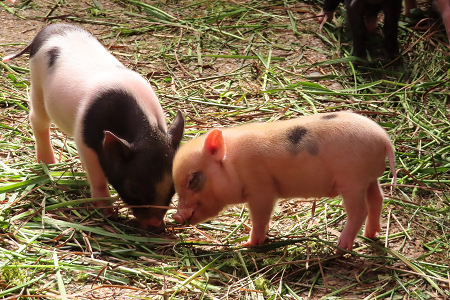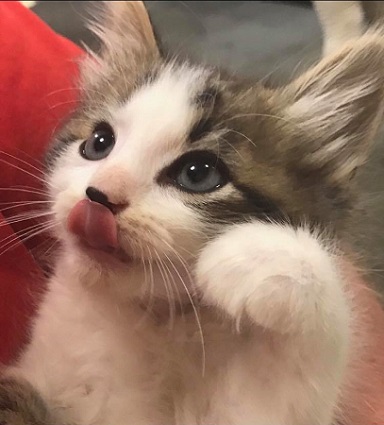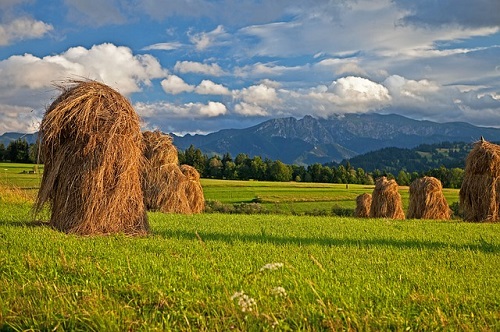Stick Like Glue
 My dog Dashaway was my favorite pet. She would stick like glue anytime I went outside.
My dog Dashaway was my favorite pet. She would stick like glue anytime I went outside.
Dashaway and I became best buddies while I was in high school. Snow kept everyone home for weeks. My parents and sister had the flu, so all the house and farm chores became my responsibility. A cousin down the road milked the cows, but Dashaway and I did the rest.
When I became tuckered out, too tired to move, Dashaway nudged me with her nose. That reminded me to keep on keeping on. She knew once work was over, we could play in the snow.
After I began dating, Dashaway still stuck like glue. If my boyfriend (now husband), and I walked outside, Dashaway walked between us. When we sat on the front porch steps, Dashaway stood or sat in the middle. She loved us, and we loved her.
To stick like glue means to stay close to someone.
For people or animals, that means we want to be together all the time. We hate to be away from one another.
Other meanings include hard-to-remove items that attach to us, such as:
- Sticky food
- Ink
- Grass stain
This expression may be literal or figurative.
The above are literal examples. Figurative examples include our:
- Reputation
- Nickname
- Memories
Dashaway earned her reputation as a good dog. She actually had six names, with Dashaway as first of the six. Memories of our time together stick like glue in my mind.
“One who has unreliable friends soon comes to ruin, but there is a friend who sticks closer than a brother” (Proverbs 18:24 NIV).
Thanks to Sharon Berry for the suggestion.
Do you have an expression you want explained? If so, please comment below.
Subscribe to receive my weekly posts by email and receive a free copy of “Words of Hope for Days that Hurt.”
If you enjoyed this post, please share it with your friends.
 When gardeners dig potatoes, they usually look for lots of large ones. Small potatoes often get thrown away.
When gardeners dig potatoes, they usually look for lots of large ones. Small potatoes often get thrown away. Please welcome my friend
Please welcome my friend  Rather than face the truth of a matter, one happily ignores it.
Rather than face the truth of a matter, one happily ignores it. It makes no sense to bite the hand that feeds you. Some animals who
It makes no sense to bite the hand that feeds you. Some animals who  To view salt of the earth, take a trip across Utah’s Bonnieville Salt Flats. I thought that solid white scene would last forever.
To view salt of the earth, take a trip across Utah’s Bonnieville Salt Flats. I thought that solid white scene would last forever. Lambs are small and have short tails. I don’t know if that has anything to do with the origin of two shakes of a lamb’s tail. However, it makes sense to me.
Lambs are small and have short tails. I don’t know if that has anything to do with the origin of two shakes of a lamb’s tail. However, it makes sense to me. Many of us complain that we have to work like a mule. Our complaints increase if we:
Many of us complain that we have to work like a mule. Our complaints increase if we: Our family had horses when I was a teenager. I loved to ride, but my sister preferred to keep both feet on the ground. She did not trust horses, especially when they chomped at the bit.
Our family had horses when I was a teenager. I loved to ride, but my sister preferred to keep both feet on the ground. She did not trust horses, especially when they chomped at the bit. “What’s wrong? Cat got your tongue?” I have heard several older relatives ask this, especially to children. Sometimes the children were shy. Other times, little ones feared a truthful answer would get them in trouble.
“What’s wrong? Cat got your tongue?” I have heard several older relatives ask this, especially to children. Sometimes the children were shy. Other times, little ones feared a truthful answer would get them in trouble. Have you tried to find a needle in a haystack? Believe me, it is not easy. I have never looked for a real needle in a stack of hay. However, I have hunted for several hard-to-locate items.
Have you tried to find a needle in a haystack? Believe me, it is not easy. I have never looked for a real needle in a stack of hay. However, I have hunted for several hard-to-locate items.